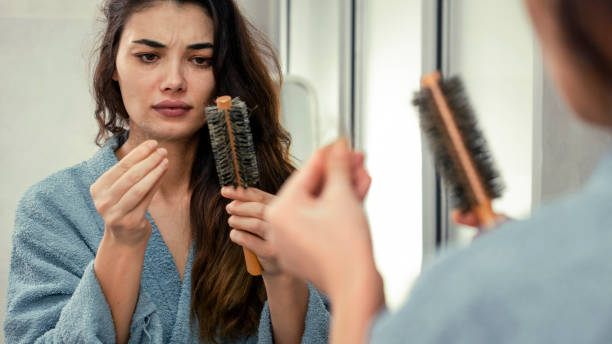Taking care of your scalp is vital for maintaining healthy, beautiful hair. Your scalp, much like your skin, requires nourishment and proper care to thrive. Neglecting scalp health can lead to various issues such as dandruff, itchiness, and even hair loss. In this article, we'll delve into essential tips for nourishing your scalp to ensure optimal hair health.
Understanding Scalp Health
Before diving into tips for scalp nourishment, it's crucial to understand what affects scalp health. Factors like genetics, hormonal imbalances, environmental pollutants, and lifestyle choices can all impact the condition of your scalp. Additionally, common scalp issues such as dryness, oiliness, and sensitivity can arise due to these factors.
Essential Tips for Nourishing Your Scalp
Proper Hair Care Routine
Establishing a consistent hair care routine is essential for maintaining scalp health. This includes gentle cleansing with a suitable shampoo and conditioner, preferably ones that are free from harsh chemicals. It's important to avoid over washing, as this can strip the scalp of its natural oils, leading to dryness and irritation.
Healthy Diet for Scalp Health
A nutritious diet plays a significant role in promoting scalp health. Foods rich in vitamins, minerals, and essential fatty acids, such as fruits, vegetables, nuts, and fish, can help nourish the scalp from within. Drinking an adequate amount of water is also crucial for keeping the scalp hydrated.
Use of Natural Remedies
Incorporating natural remedies into your hair care routine can provide additional nourishment to the scalp. Ingredients like coconut oil, tea tree oil, and aloe vera have moisturizing and soothing properties that can benefit the scalp. These natural remedies can help alleviate common scalp issues and promote overall hair health.
Choosing the Right Products
When selecting hair care products, it's essential to choose ones that are suitable for your scalp type and concerns. Look for products that are free from sulfates, parabens, and other harsh chemicals that can strip the scalp of its natural oils. Opt for products containing nourishing ingredients like argan oil, jojoba oil, and vitamin E to promote scalp health.
Avoiding Harmful Practices
Certain styling practices can have a detrimental effect on scalp health. Avoid using excessive heat from styling tools like flat irons and blow dryers, as this can damage the scalp and hair follicles. Additionally, refrain from tight hairstyles that pull on the scalp, as this can lead to hair breakage and traction alopecia.
Scalp Massages and Treatments
Regular scalp massages can stimulate blood flow to the scalp, promoting hair growth and overall scalp health. You can use your fingertips to massage the scalp gently or invest in a scalp massager for a more thorough massage. Additionally, DIY scalp treatments using ingredients like apple cider vinegar and honey can help nourish the scalp and improve its condition.
Protecting Your Scalp
Just like your skin, your scalp can be vulnerable to sun damage and environmental pollutants. Protect your scalp by wearing a hat or applying sunscreen when exposed to the sun for prolonged periods. Additionally, use products with UV protection to shield your scalp from harmful UV rays.
Consulting Professionals
If you're experiencing persistent scalp issues or hair loss, it's essential to seek professional advice from a dermatologist or trichologist. They can diagnose any underlying conditions and recommend appropriate treatments to address your specific scalp concerns. Don't hesitate to consult a professional if you're unsure about the best course of action for maintaining scalp health.
Conclusion
Hair loss management in Abu Dhabi, vibrant hair. By following the essential tips outlined in this article, you can ensure that your scalp receives the care it deserves. From establishing a proper hair care routine to incorporating scalp massages and treatments, prioritizing scalp health can lead to improved overall hair health and appearance.
FAQs
- How often should I wash my hair to maintain scalp health?
- It's recommended to wash your hair every 2-3 days to prevent overstripping the scalp of its natural oils.
- Are there any specific foods that promote scalp health?
- Foods rich in omega-3 fatty acids, vitamins A and C, and zinc are particularly beneficial for scalp health.
- Can stress affect scalp health?
- Yes, stress can contribute to scalp issues such as dandruff and hair loss. Practicing stress management techniques can help alleviate these symptoms.
- Is it necessary to use conditioner on the scalp?
- It's best to focus conditioner on the lengths and ends of the hair rather than the scalp to avoid weighing down the hair and causing greasiness.
- Are there any natural remedies for treating dandruff?
- Yes, ingredients like tea tree oil, apple cider vinegar, and aloe vera can help alleviate dandruff when used as part of a regular hair care routine.





Comments